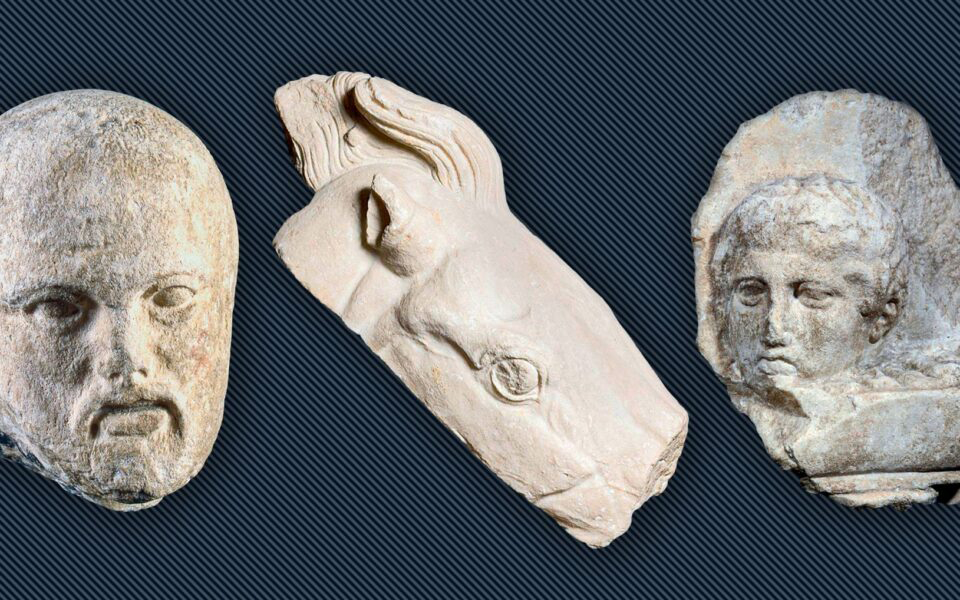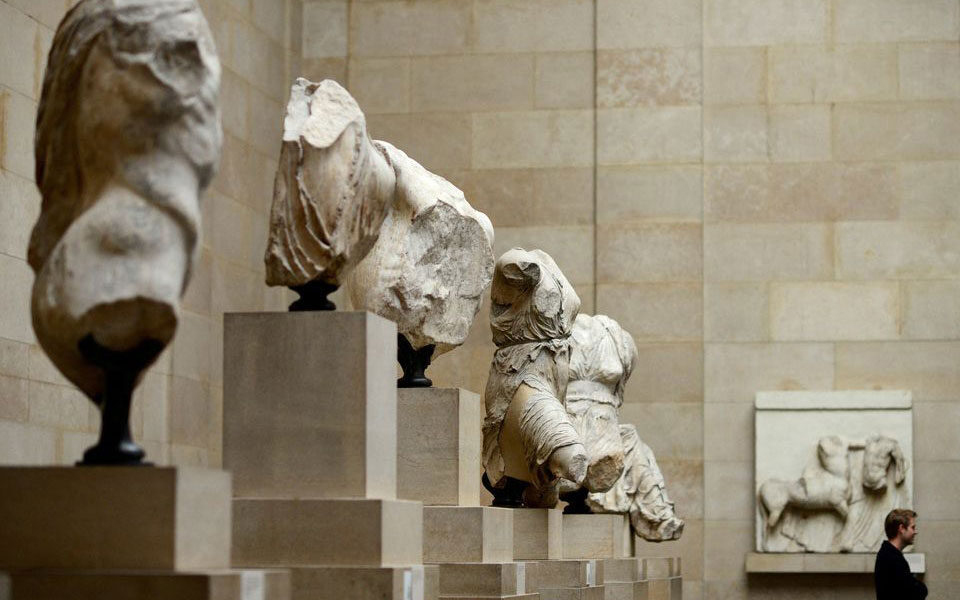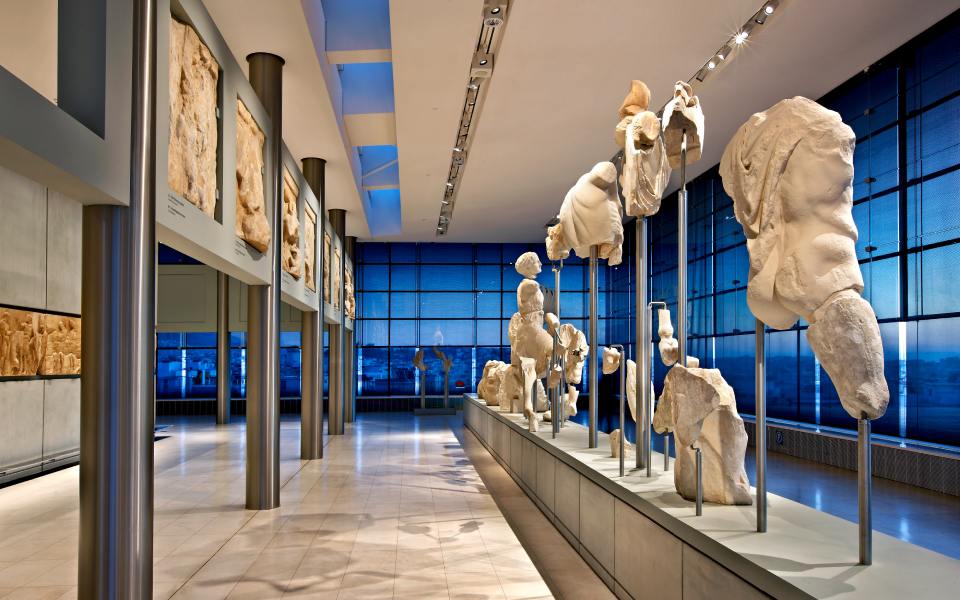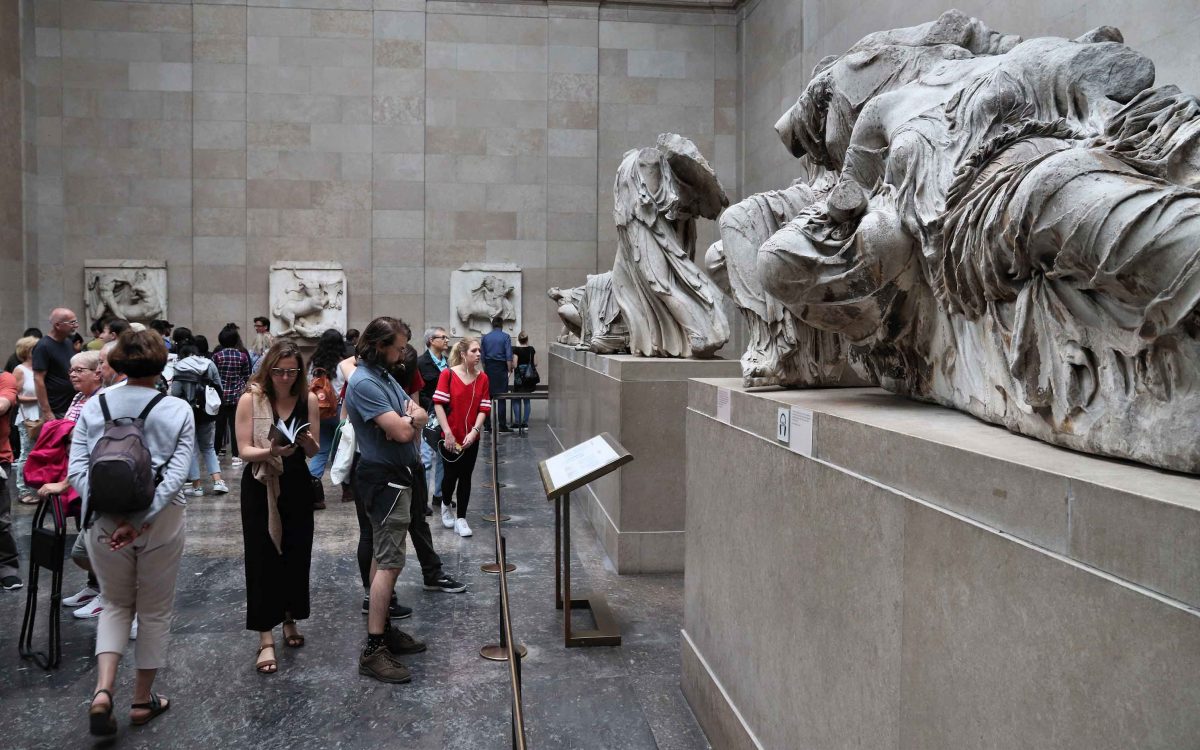If you have been keeping up all the news reports on the Parthenon Marbles in recent months, you’d be forgiven for feeling like you’ve been on a veritable rollercoaster ride.
In early December, a report in the Greek daily newspaper Ta Nea described “secret, behind-the-scenes meetings” between Greek Prime Minister Kyriakos Mitsotakis and George Osborne, the current chair of the British Museum, asserting that an agreement regarding the fate of the 2,500 sculptures was “90 percent complete.” Campaigners in Greece, the UK and around the world, some of whom have been at the coalface of the world’s longest running cultural dispute for decades, could barely contain their joy.
Adding to the excitement, the Vatican announced days later that Pope Francis had approved the return of three fragments of the Parthenon frieze, held in the collection of the Vatican Museums since the 19th century. (It has since been announced that a special ceremony to receive the fragments at the Acropolis Museum has been scheduled for March 24).
As the year ended, things were looking up.

© AP
Dampening the mood
And then came reports in early January of Greek and British officials tempering the debate somewhat, saying that constructive discussions were still very much at a “preliminary stage.” The UK’s Daily Telegraph reported that George Osborne was working on a possible loan arrangement between the two countries, allowing for the sculptures to be returned to Greece as part of an exchange deal. Greek officials, however, were cautious in their reply, stating that there had been no further discussion with the British government on the matter, and that its request for the sculptures’ return was ongoing. In a separate article by The Guardian, sources close to the Greek government flat denied reports of an agreement, with one senior official telling the UK newspaper that “there is no such deal.”
This is where things got a little muddled. While Osborne spoke of being “reasonably optimistic” for a deal on a BBC Radio program in mid-February, he categorically ruled out the sculptures being returned on a permanent basis. Furthermore, any “loan agreement” would be unacceptable to the Greek side as it would be tantamount to accepting the British Museum’s ownership of the sculptures. “It would be a big problem for Mitsotakis to accept a ‘loan’ of what he regards as Greek property,” reported the Financial Times.
Amid ongoing political turmoil in the UK, with three successive prime ministers in the second half of 2022, the ruling Conservative Party continues to pass the buck on the issue, stating that it is a matter for the trustees of the British Museum. Indeed, under the British Museum Act of 1963, the current law prohibits almost all deaccessioning of objects from its collection, except in very limited circumstances.

© Reuters
In a report earlier today by The Guardian, Prime Minister Rishi Sunak has made it abundantly clear that he would block any attempt to return the sculptures to Greece, saying that “the UK has cared for the Elgin marbles for generations” and that “the collection of the British Museum is protected by law, and we have no plans to change that.”
While the British Museum could still theoretically arrange a long-term loan of the sculptures, Sunak is unlikely to break with the stances of his predecessors Liz Truss and Boris Johnson, who were both against any kind of loan.
So, following promising reports of secret talks and a possible deal, Prime Minister Sunak’s latest comments have come as a bitter blow; a timely reminder that the UK government still holds all the cards. Have we hit a proverbial brick wall?

© Shutterstock
A new hope?
“The Elgin Marbles have always been controversial. Some, like the great Romantic poet Lord Byron, thought they should never have left Greece; but at the British Museum they have been admired by tens of millions of people and I believe they play a vital role in the telling the complete story of our common humanity,” wrote George Osborne last week, in his “Dairies” column for The Spectator magazine.
Osborne, who served as Britain’s Chancellor of the Exchequer from 2010 to 2016, insists that he is still trying to work with Greece to see if the sculptures, removed from the Acropolis by Lord Elgin from 1801 to 1812, “can be seen both in London and Athens, while treasures currently in Greece could be seen by new audiences here.”
Meanwhile, the non-profit organization “Parthenon Project,” chaired by Lord Ed Vaizey, UK Minister for Culture, Communications and Creative Industries from 2010 to 2016, is advocating for a landmark “cultural cooperation agreement” for the reunification of the sculptures in Greece, and the creation of a joint foundation between the two countries.

© Shutterstock
According to a recent press release, the group is calling on both British Museum officials and the Greek government to “agree to disagree” on the thorny issue of ownership, and set up a foundation with a governing body composed of an equal number of officials from the UK and Greece “to fund education and cultural activities for the benefit of future generations.”
The Parthenon Marbles could then be reunited in Athens, while other major Greek works of art, which could include the 3,600-year-old “Mask of Agamemnon,” could be loaned to the British Museum for temporary exhibitions on rotation.
In a statement, Lord Vaizey said: “A centuries-old issue requires a new solution. Greece and the UK are the closest allies and we believe this proposal is a genuinely mutually beneficial agreement.”
Actor, author and life-long philhellene Stephen Fry, a member of groups Advisory Board, added: “History has shown that good faith, trust and mutual respect can, with time and patience, remove the most intractable obstacles and achieve the weakest discoveries in human affairs. George Osborne has shown a real willingness to sit down at the negotiating table to try to find a way through this 200-year saga.”
While relations between the two sides of the campaign to reunite the sculptures in Athens have thawed in recent months, it’s unlikely that a loan agreement will bring the ownership dispute to an end any time soon. More pressure must be exerted on the UK parliament to debate and amend the British Museum Act 1963 if we are to see the sculptures return to their rightful home.












